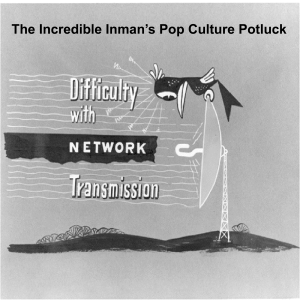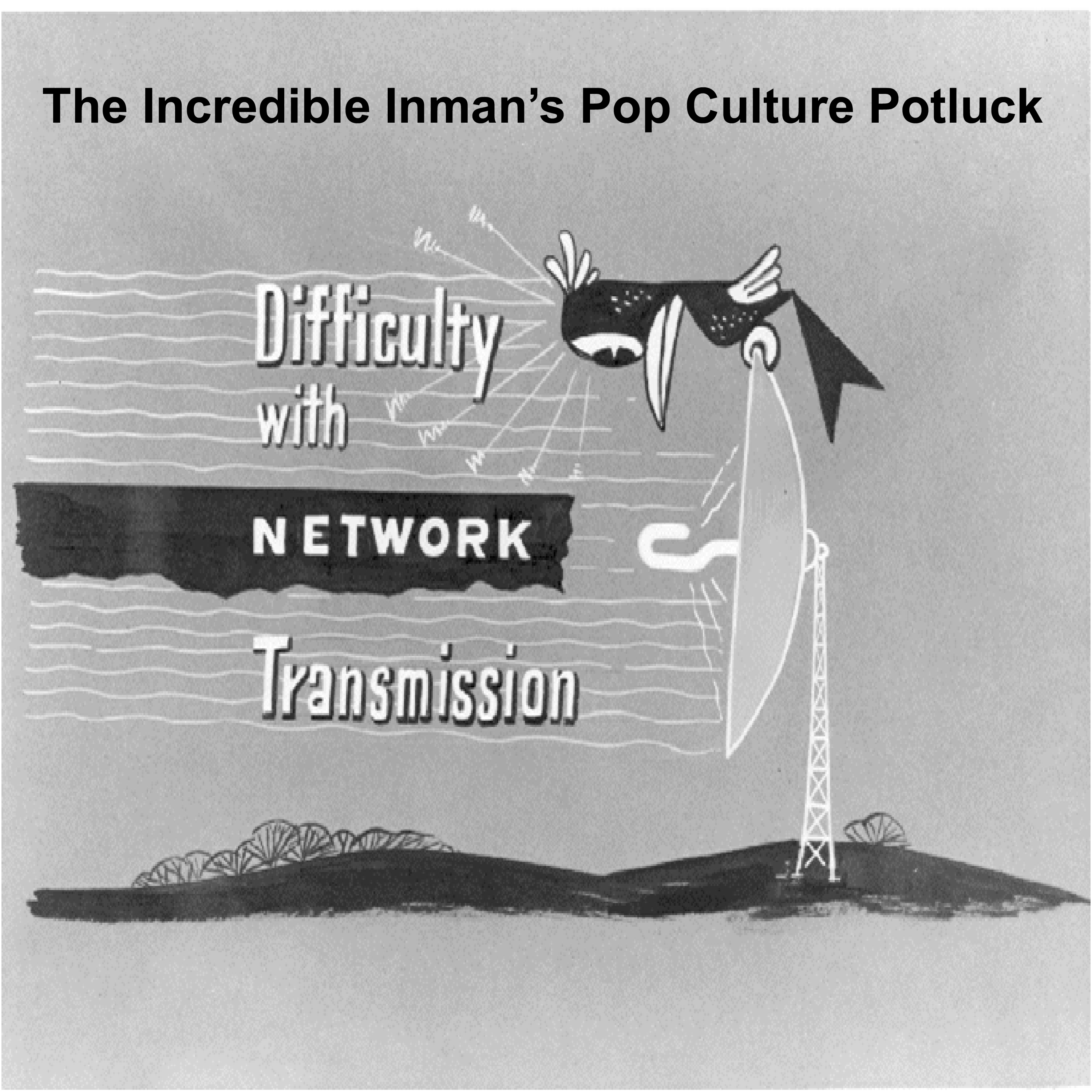Episodes

Friday Feb 23, 2018
James Cagney's Final Act(ing)
Friday Feb 23, 2018
Friday Feb 23, 2018
After a thirty-year Hollywood career, James Cagney made what he thought would be his final film in 1961 -- a comedy directed by Billy Wilder called "One Two Three." Cagney then retired, spending his time between two farms he owned -- one on Martha's Vineyard and one in upstate New York. But Cagney got tired of being retired, and in 1980 his friend, director Milos Forman, talked Cagney into taking a small but significant role in Forman's film adaptation of the bestselling novel "Ragtime." Further encouraged by his family and lifelong friend Pat O'Brien, Cagney went on to play the lead role in a 1984 TV movie called "Terrible Joe Moran." By that point Cagney had been weakened by several strokes and was in a wheelchair, but he powered through, inspired by O'Brien's words of encouragement: "Do it, Cagney. It's medicine."

Friday Feb 16, 2018
The Variety Show Skirmishes of 1963
Friday Feb 16, 2018
Friday Feb 16, 2018
In the fall of 1963, the big TV news was that three bonafide movie stars were going to host weekly variety shows -- Judy Garland, Jerry Lewis and Danny Kaye. By the end of the season, only one of them would still be on the air -- the other flamed out spectacularly and the third, after being wrecked by network interference, started again from scratch and found itself in its outstanding final episodes. Along the way, there were ego clashes, blown-out budgets, behind-the-scenes drama, creative upheaval, flat-out sexism and a final gesture of defiance centered around the assassination of President John F. Kennedy.

Friday Feb 09, 2018
1952: The 60-Second Election
Friday Feb 09, 2018
Friday Feb 09, 2018
In 1952, Republican Dwight Eisenhower squared off against Democrat Adlai Stevenson in the presidential election. Eisenhower, who had been commander of allied forces in Europe during World War II, was enormously popular but not much of a public speaker. So a combination of talents from America’s largest advertising agencies, including the man upon whom the “Mad Men” character Don Draper was roughly based, convinced Eisenhower and his advisers that the best way to reach American voters was the same way they received selling propositions about what soap to use, what car to drive, what cigarette to smoke — by a TV commercial. Eisenhower reluctantly agreed — and political campaigns were changed forever.

Friday Feb 02, 2018
The Jack Benny-Johnny Carson Connection
Friday Feb 02, 2018
Friday Feb 02, 2018
In 1949, Jack Benny took advantage of new capital gains laws and moved his popular program from NBC to CBS, an immense boost to that network in ratings and prestige. At about the same time, a senior at the University of Nebraska named Johnny Carson was putting together his thesis, "How to Write Comedy for Radio," a tape-recorded presentation filled with examples of Jack Benny's work. Carson couldn’t have known it at the time, but within a few years Benny would become one of Carson’s biggest boosters – they formed a kind of mutual admiration society that would last until Benny’s death in 1974. Benny had been one of America’s dominant comedy voices during the 1930s, '40s and '50s – and by utilizing tricks he’d learned from Benny, Carson, as host of “The Tonight Show” for thirty years, would become one of America’s dominant comedy voices during the 1960s, '70s and '80s.

Friday Dec 01, 2017
The Quiz Show Scandals: "Twenty-One"
Friday Dec 01, 2017
Friday Dec 01, 2017
We end our two-part look at the quiz show scandals with the most infamous example of all -- the NBC program "Twenty-One." Contestants on the show were deliberately given answers to questions, directed to lose games and were even coached on how, for maximum dramatic effect, to hesitate when answering a question. The show's most popular contestant, Charles Van Doren, was celebrated for his intellect and humility and rewarded with a job on NBC-TV. But he ended up revealing his role in the hoax during a dramatic congressional hearing, and his reputation was forever tarnished.

Thursday Nov 30, 2017
Ed Sullivan, American Gatekeeper
Thursday Nov 30, 2017
Thursday Nov 30, 2017
In 1948, Ed Sullivan began hosting a weekly variety series on CBS-TV. His background as a newspaper columnist served him well -- he had an unerring instinct for what people wanted to see, and he used his unique power to become an influential American gatekeeper for most of the 1950s and '60s. We take a look a Sullivan's influence, including "blessing" Elvis Presley and the Beatles by praising them on the air and reassuring anxious parents of teenagers. We also review his feuds with the likes of Steve Allen, Jackie Mason and Buddy Holly.

Friday Nov 24, 2017
The Quiz Show Scandals: "The $64,000 Question"
Friday Nov 24, 2017
Friday Nov 24, 2017
During the summer of 1955, a new TV show kept people in front of their sets on hot Tuesday nights. “The $64,000 Question” was a big-money quiz show that made its contestants instant celebrities and the show even displaced “I Love Lucy” as the nation’s top TV program. What nobody realized at the time was that the show was planned, paced and cast like a drama, and a contestant’s success depended not on the questions he or she answered correctly, but on a sponsor who would drop you when you ceased to be useful.

Friday Oct 13, 2017
In Godfrey We Trust
Friday Oct 13, 2017
Friday Oct 13, 2017
In the late 1940s and early '50s the biggest moneymaker on CBS radio and television was Arthur Godfrey -- at one point he reportedly brought in 12 percent of the network's income. He had an unpretentious style of communicating with his audience, and a smooth manner of selling products that sponsors loved. But in 1953, at the height of his popularity, Godfrey suffered a huge, self-inflicted blow to his stature when he fired one of his regulars, known as "the little Godfreys," live on the air. The incident haunted the rest of his career.

Friday Oct 06, 2017
The Rise and Fall of Dragnet
Friday Oct 06, 2017
Friday Oct 06, 2017
In the summer of 1949, "Dragnet" premiered on NBC radio. It was a show that sounded like no other thanks to creator-star Jack Webb's obsession with authenticity. "Dragnet" then moved to TV and ran for most of the 1950s. Its theme song and opening disclaimer -- "The story you are about to see is true; the names have been changed to protect the innocent" -- became part of pop culture history. During the turbulent late 1960s, "Dragnet" was revived, and it hadn't changed -- but the world had, and authority was something to be questioned rather than celebrated. We look at the influence of "Dragnet" and Webb's evolution into an outspoken advocate of police officers.

Friday Sep 29, 2017
When Maude Findlay Had an Abortion
Friday Sep 29, 2017
Friday Sep 29, 2017
In the fall of 1972, the first spinoff of "All in the Family" premiered. It was "Maude," with Beatrice Arthur as Edith Bunker's liberal cousin. And right out of the gate, "Maude" took on controversial topics like psychotherapy, black militancy and modern morality. Then on November 14, in the ninth episode of the series, Maude found out she was pregnant at age 47. She considered her options, including abortion, which at the time was legal in New York state, where the show was set. (The U.S. Supreme Court wouldn't legalize abortion nationwide until 1973.) Maude's decision to get an abortion would go largely unnoticed during the episode's original run, but when summer reruns came along the show received a firestorm of criticism, driving the idea of abortion -- and even the mention of the word itself -- off of network television for the next fifteen years.

